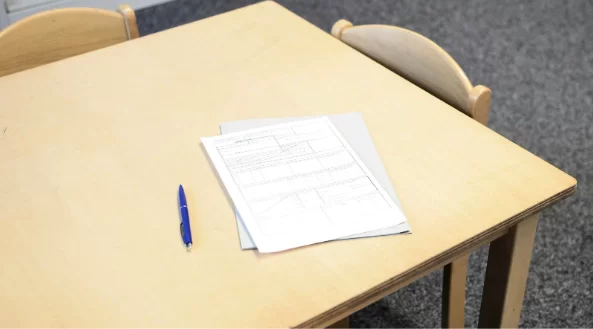Written by Lewis Mclellan
Tips to ace your IB Economics exams! If you are now stumbling upon this blog then I am guessing that means one thing: you are one of the thousands of students around the world who face your IB Economics exams rapidly approaching.
If this assumption is correct, you are in the right place. The following blog contains a brief but precise guide to tackling the IB Economics exams. Expect timeless exam cliches to be reinforced but also clever strategies and vital reminders to feature. A combination of these should hopefully help you to cement a strategy to head into the exams with.
Pre-Exam Tips
First, the cliches. A good night’s sleep? Absolutely. A good breakfast? Of course. As has been probably suggested to you by certain family members, all of these small details can be really important for succeeding in exams. In terms of how to ultimately prepare for your IB Economics exams, you essentially just need to follow one simple principle. That is to keep everything the same!
In practice, this means going to bed at the same time, eating the same meals and just following your normal routine. Doing this should mean that you go into the exam feeling, well, yourself!
The only exception that I would make to this rule concerns revision methods. As you get really very close to the exams, I would recommend moving yourself more and more towards recall activities. For IB Economics exams, this would consist of short, sharp revision bursts where you test your ability to recall definitions, diagrams, formulas and essay plans.
When you enter the exam room, you will be forced to retrieve a wide variety of information from your memory. In simple terms, increasingly switching to revision activities that perform this exact task should mean that your retrieval is sharper. Besides helping to lay key knowledge at your fingertips, these activities should also be less strenuous on you, allowing you to enter the exams fresher. Amid your packed exam timetable, they also represent the best way to cover everything you need to review in a short window of time.
General Advice
At this stage, a question you should be asking yourself is this: how can I be my most confident self walking in to sit my exams. For me, generally speaking, I think that you’ll be able to confidently stroll into your Economics exams if you have nailed down two things.
Firstly, know your processes! Walking into the exam, you should know exactly how you are going to utilise each minute afforded to you by the exam. This includes the five minutes reading time given to you at the start of the paper. You should also know your process for how you are going to pick your question/s.
Following on from this, my second piece of advice would be to eliminate uncertainties. Of course, a variable that you face heading into the exams is what content the IB will choose to test you on. This however, should be the only variable. Everything else from how much time you intend to allocate to a particular section to your structures for answering specific question types should be set in stone heading into the exam. Putting thought into these details allows you to enter the exam at your most confident and prepared.
Now to some paper-specific tips!
Paper 1
- Reading Time: Take the five minutes provided to you to pick the question you are going to answer first and foremost. After doing so, you can then start to form a mental plan of how you will answer your part a). This will ensure that you can get straight into writing your part a) once the exam starts.
- Timings: Following on from this, most teachers recommend spending 30 minutes on part a) and 45 minutes on part b). Mathematically, as in according to a marks per minute approach, this is right. However, if you take the alternative approach of distributing your time according to how difficult it is to gain marks across the two parts, you should end up spending more like 20/25 minutes on part a) and the rest on part b). Nevertheless, the most important thing here is to know which timings you are going with heading into the exam and then to execute them.
- Five Minute Break: Here, I might have used the word ‘break’ a little liberally. What I mean by a five minute break is for you to take five minutes in between part a) and part b) to plan part b). Particular focus here should be on coming up with a list of evaluation points. Students that do this tend to have evaluation which is more thought-out and coherently presented.
- Spare Time: Lastly, if you have a few spare minutes at the end of your Paper 1, use them to check diagrams and definitions. These are the two areas where small errors can cost you significant marks. Therefore, they are the two areas where a fresh look can be most impactful marks-wise.
Paper 2
- Skim the Text: Don’t waste your time reading lots of the unnecessary content that lies in the case study. Instead, skim the texts to get a general overview of the case study and then launch into answering the short-answer questions. Doing so allows you more time to answer the 15 mark essay at the end of the paper where you can then take time to properly inspect the text.
- Focus on the Question: When completing the four mark diagram questions that form the middle chunk of a Paper 2, remember to stay focused on the question. Lots of students go off on tangents, explaining every little detail of the diagram. Remember that the question is usually interested in just one facet/effect within the diagram so usually it is sufficient for you just to highlight this in your explanation.
- Use the Text/Data: I cannot stress this enough. When completing the 15 mark essay at the end of a Paper 2, use as much as the text/data as you can. Use it to support your evaluation points as well as to challenge them. Use it in the form of quotes, facts or figures and be blatant when you’re using it. For example, don’t be afraid of having lots and lots of brackets saying (Part A), etc.
Paper 3 (HL Only)
- Don’t Lose Silly Marks: Units and two decimal places. Always, always, always remember these two principles when completing calculations in a Paper 3. As long as you put your answers in the correct units and to two decimal places you won’t lose any marks that you shouldn’t.
- Be Clear: In your workings out for questions it is really important to be clear. Just like when you draw your diagrams, make your workings out for a calculation large and easy-to-read. In the case of errors, this could secure you vital error-carried-forward marks.
- Use Everything: In terms of the ten mark essay at the end of a Paper 3, my advice is similar to Paper 2. Use as much as data and information as you can to either support or challenge the policy you are recommending. You can even use your own answers to calculation questions to do so!
And Breathe…
Yes, phew. Your IB Economics exams are now over. This is where my most important tip comes into play. This tip being… to forget about Economics. Whatever you do, do not stew on the exams. If you have other exams to sit after Economics then quickly transition to thinking about these.
If, on the other hand, finishing Economics now means that you are done with the IB, then hooray! Now is the time to kick back, celebrate and start doing all the fun things you had planned for post-IB life. At this point, your body will be free of having to do the IB and your mind should be too!
All the best for exams!



